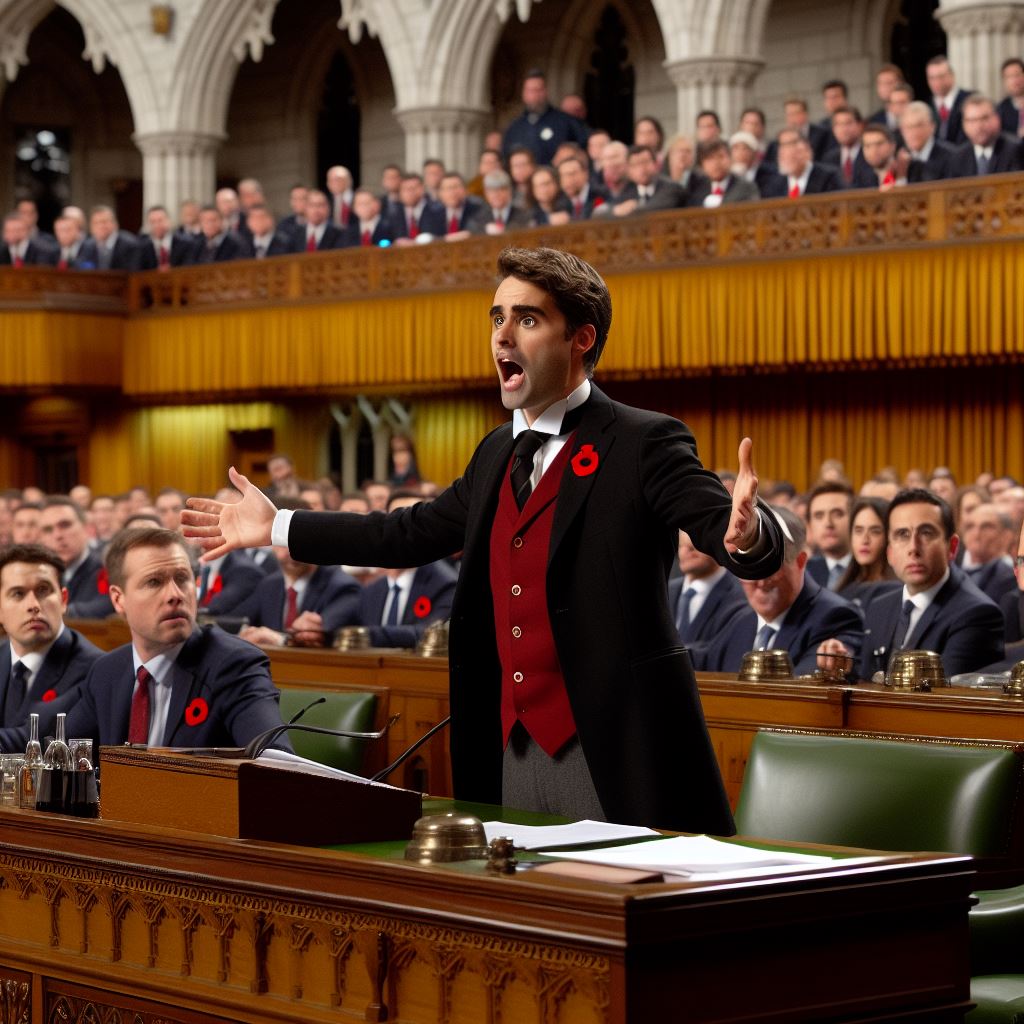Introduction
Policy analysts are experts who analyze and evaluate existing policies, providing crucial insights for improvement and development.
Their role is significant in creating effective climate change policies that address the challenges brought about by global warming.
Climate change policies are vital as they aim to reduce greenhouse gas emissions, protect natural resources, and foster sustainable development.
By studying the impacts of climate change, policy analysts identify the most pressing environmental issues and propose solutions.
They gather and analyze data from various sources to assess the effectiveness of existing policies in addressing climate change issues.
Policy analysts collaborate with stakeholders such as scientists, policymakers, and community members to ensure the relevance and feasibility of proposed policies.
Using their expertise, policy analysts identify gaps or shortcomings in current policies and provide recommendations for improvement.
Their work goes beyond research; they actively engage in the policymaking process by proposing evidence-based solutions.
Policy analysts also play a crucial role in evaluating the implementation and impact of climate change policies.
Their insights help in monitoring the progress of policy goals and adjusting strategies as necessary to achieve desired outcomes.
In short, policy analysts are indispensable in shaping effective climate change policies.
Their expertise and analytical skills help in crafting policies that address the pressing environmental challenges we face today.
Overview of climate change policies
Definition and significance of climate change
- Climate change refers to long-term alterations in temperature, precipitation, wind patterns, and other aspects of Earth’s climate system.
- It is of significant global importance as it poses serious threats to ecosystems, human health, economies, and overall sustainable development.
- Understanding the causes and impacts of climate change is crucial for designing effective policies.
Current state of global climate change policies
- Global climate change policies aim to mitigate greenhouse gas emissions and adapt to the impacts of climate change.
- Various international agreements, such as the Paris Agreement, have been established to address climate change on a global scale.
- However, the current state of these policies is inadequate, as countries struggle to meet their emission reduction targets.
- There is a need for stronger enforcement mechanisms and increased collaboration among nations to achieve substantial progress.
Challenges and complexities in addressing climate change
- One of the main challenges is the complexity of the climate system, making it difficult to predict the exact impacts of climate change.
- Uncertainty exists regarding the timing and severity of climate change effects, which complicates policy development.
- There are also economic and political obstacles, as some industries and countries resist transitioning to low-carbon economies.
- Furthermore, addressing climate change requires a collective and global effort, as it transcends national boundaries.
- Coordinating policies among diverse stakeholders, including governments, businesses, and civil society, adds another layer of complexity.
- Funding climate change policies poses another challenge, as significant investments are necessary for mitigation and adaptation measures.
- Ensuring equity and justice in climate change policies is also crucial, as vulnerable communities are disproportionately affected.
- Overcoming these challenges requires innovative solutions, interdisciplinary approaches, and continuous evaluation of policy effectiveness.
In fact, climate change policies play a critical role in addressing the threats posed by climate change.
Understanding the definition and significance of climate change is crucial for policy development.
The current state of global climate change policies faces challenges in achieving emission reduction targets and enhancing international collaboration.
Complexities arise from the inherent nature of the climate system, uncertainty in climate change impacts, economic and political obstacles, and the need for global cooperation.
Efforts to overcome these challenges involve interdisciplinary approaches, adequate funding, and ensuring equity in policy implementation.
Continued evaluation and improvement of climate change policies are vital for achieving sustainable and resilient societies.
Read: Policy Analysts: Understanding the Role
Role of policy analysts in climate change policies
Responsibilities and tasks of policy analysts
Policy analysts play a crucial role in the development and implementation of effective climate change policies.
Their responsibilities and tasks involve:
- Conducting in-depth research on the latest scientific findings and advancements in climate change.
- Studying the social, economic, and environmental impacts of climate change on different sectors.
- Identifying key stakeholders and engaging in consultations to understand their concerns and perspectives.
- Evaluating the effectiveness of existing policies in addressing climate change issues.
- Proposing and developing new policies that align with climate change mitigation goals.
- Engaging in policy analysis and scenario modeling to assess the potential outcomes of alternative policy options.
- Collaborating with scientists, economists, and other experts to ensure the accuracy and credibility of policy recommendations.
- Communicating complex policy analysis findings to policymakers, stakeholders, and the general public.
Utilization of various research methodologies and data analysis
In order to fulfill their tasks, policy analysts utilize various research methodologies and conduct data analysis:
- They collect, analyze, and interpret data from diverse sources such as surveys, databases, and scientific studies.
- They employ statistical techniques to identify patterns, trends, and correlations in climate change data.
- They use modeling and simulation tools to project future climate scenarios and evaluate policy impacts.
- They apply cost-benefit analysis to assess the economic feasibility and potential benefits of proposed policies.
- They conduct literature reviews to gather insights from existing research and policy documents.
Assessing the impact of existing policies on climate change mitigation
One of the critical tasks of policy analysts is to assess the impact of existing policies on climate change mitigation:
- They evaluate the effectiveness and efficiency of policies in reducing greenhouse gas emissions.
- They analyze the social, economic, and environmental consequences of policy implementation.
- They identify unintended consequences and potential trade-offs associated with specific policies.
- They monitor and evaluate policy outcomes using indicators and performance metrics.
- They provide recommendations for policy adjustments and improvements based on evaluation results.
Overall, policy analysts act as experts who bridge the gap between scientific knowledge, policy formulation, and real-world implementation.
Their work is crucial in shaping climate change policies that can effectively address the challenges we face.
Unlock Your Career Potential
Visualize a clear path to success with our tailored Career Consulting service. Personalized insights in just 1-3 days.
Get StartedRead: Policy Analyst Success Stories in Canada
Steps involved in policy analysis for climate change
In this blog section, we will explore the steps involved in policy analysis for climate change.
Problem identification and agenda setting
- Identify the specific issues related to climate change and determine their importance.
- Evaluate the urgency and potential impact of these issues to set the policy agenda.
Policy research and data collection
- Conduct thorough research on various aspects of climate change, including its causes and consequences.
- Gather relevant data from reliable sources to support policy analysis and decision-making.
The Policy formulation and evaluation
- Develop policies and strategies to address the identified climate change issues.
- Evaluate the feasibility, effectiveness, and potential outcomes of different policy options.
Policy implementation and monitoring
- Implement the selected policies by defining clear action steps and allocating necessary resources.
- Monitor and assess the progress of policy implementation to ensure its effectiveness and make adjustments as needed.
Policy review and revision
- Periodically review the implemented policies to evaluate their impact and identify areas for improvement.
- Revise and update the policies based on new scientific findings, feedback, and changing circumstances.
By following these steps, policy analysts can effectively analyze and develop climate change policies.
Read: Networking for Policy Analysts in Canada
Key skills and qualifications of policy analysts working on climate change policies
Policy analysts working on climate change policies require a range of key skills and qualifications to effectively contribute to the development, implementation, and evaluation of such policies.
Strong analytical and research skills
One essential skill is strong analytical and research skills. These analysts need the ability to analyze and interpret complex data and information related to climate change.
They must be proficient in using various research methods and tools to gather relevant information and generate meaningful insights.
Additionally, they should possess the capability to evaluate research findings and translate them into actionable policy recommendations.
Understanding of environmental science and climate change dynamics
Furthermore, policy analysts dealing with climate change policies should have a solid understanding of environmental science and climate change dynamics.
This entails familiarity with the fundamental principles of environmental science and its intersection with climate change.
They should be knowledgeable about the causes and impacts of climate change on various ecosystems and communities.
Being able to comprehend scientific studies and reports on climate change is crucial for these analysts to provide informed policy advice.
Knowledge of policy development and implementation processes
In addition to the scientific aspect, policy analysts must have a comprehensive understanding of policy development and implementation processes.
This includes familiarity with the political and bureaucratic processes involved in policy formulation and implementation.
They should also be well-versed in the legal and regulatory frameworks related to climate change policies.
Navigating through complex policy landscapes and identifying potential barriers and opportunities for policy change are essential skills for these analysts to drive effective policy action.
Excellent communication and advocacy skills
Lastly, excellent communication and advocacy skills are crucial for policy analysts working on climate change policies.
They need strong written and verbal communication abilities to convey complex ideas and recommendations clearly and convincingly.
These analysts should tailor their communication strategies to different audiences, including policymakers, stakeholders, and the general public.
They should be skillful in presenting data and evidence to support their policy recommendations and influence decision-making processes.
Building coalitions, fostering partnerships, and engaging in advocacy efforts are also important skills for policy analysts to effectively promote and advance climate change policies.
In essence, policy analysts working on climate change policies must possess a range of key skills and qualifications.
These include strong analytical and research skills, an understanding of environmental science and climate change dynamics, knowledge of policy development and implementation processes, as well as excellent communication and advocacy skills.
These competencies enable policy analysts to contribute significantly to the development and implementation of effective climate change policies.
Read: Policy Analysis in Healthcare: A Deep Dive

Delve into the Subject: Fire Prevention Tips for Homeowners
Examples of successful climate change policies influenced by policy analysts
Carbon pricing and emissions trading schemes
- Policy analysts have played a crucial role in the implementation of carbon pricing and emissions trading schemes.
- These policies aim to reduce greenhouse gas emissions by putting a price on carbon.
- Through these schemes, industries are allotted a certain amount of carbon allowances.
- Industries that emit less than their allowances can sell their surplus to those exceeding their limits.
- This incentivizes industries to reduce their carbon emissions and invest in cleaner technologies.
- Policy analysts have helped design and refine these schemes to ensure their effectiveness and fairness.
- Successful examples of such policies can be seen in countries like Sweden, Germany, and California.
- These carbon pricing and emissions trading schemes have led to a significant reduction in carbon emissions.
Renewable energy promotion and investment incentives
- Policy analysts have also played a vital role in promoting renewable energy and providing investment incentives.
- Governments have introduced various policies to encourage the development and use of renewable energy sources.
- Examples of such policies include feed-in tariffs, tax credits, and grants for renewable energy projects.
- By analyzing the potential benefits of renewable energy, policy analysts have influenced the formulation of these policies.
- These policies have spurred significant investments in renewable energy technologies like solar and wind.
- Countries like Denmark and Germany have successfully implemented policies that have led to a substantial increase in renewable energy production.
- Policy analysts continue to assess and refine these policies to make them more effective and economically viable.
Sustainable transportation and urban planning initiatives
- Policy analysts have also played a key role in promoting sustainable transportation and urban planning initiatives.
- These policies focus on reducing carbon emissions from transportation and creating more sustainable cities.
- Policy analysts have provided insights and recommendations on building bike lanes, improving public transportation, and promoting electric vehicles.
- Cities like Copenhagen, Amsterdam, and Vancouver have implemented successful sustainable transportation initiatives.
- These policies have led to increased bicycle usage, reduction in car dependency, and improved air quality.
- Policy analysts continue to assess the impact of these initiatives and suggest improvements to make cities more livable and sustainable.
- These policies contribute to addressing climate change by reducing greenhouse gas emissions from transportation.
In brief, policy analysts have played a crucial role in influencing successful climate change policies.
Carbon pricing and emissions trading schemes, renewable energy promotion, and sustainable transportation initiatives are some examples where policy analysts have made a significant impact.
Their expertise and analysis have shaped effective policies that encourage industries to reduce emissions, stimulate renewable energy investments, and create sustainable cities.
As the fight against climate change intensifies, policy analysts will continue to play a vital role in shaping policies that pave the way for a more sustainable future.
Challenges faced by policy analysts in formulating climate change policies
Political and economic influences
- Policy analysts often face challenges in formulating climate change policies due to political pressures.
- Political and economic interests can hinder the development of effective and ambitious climate change policies.
- Policy analysts must navigate complex political landscapes, balancing the needs of various stakeholders.
- Influential industries and lobbyists sometimes exert undue influence over climate change policy decisions.
- Policy analysts must carefully consider the economic implications of climate change policies to gain political support.
Scientific uncertainties and evolving climate change dynamics
- Policy analysts encounter difficulties in formulating climate change policies due to scientific uncertainties.
- The dynamic nature of climate change requires policy analysts to adapt and update policies accordingly.
- Climate science is constantly evolving, and policy analysts must stay abreast of the latest research findings.
- Uncertainties in climate models and projections can make it challenging to develop accurate and effective policies.
- Policy analysts must strike a balance between scientific knowledge and the need for action in the face of uncertainty.
Balancing short-term economic concerns with long-term sustainability goals
- Policy analysts struggle to balance short-term economic considerations with long-term sustainability goals.
- Implementing climate change policies may have immediate economic costs that policymakers must address.
- Policy analysts must evaluate the trade-offs between short-term economic gains and long-term environmental stability.|
- Negotiating the delicate balance between economic growth and environmental sustainability poses a challenge.
- Long-term sustainability goals require policy analysts to consider intergenerational equity and future wellbeing.
In review, policy analysts face a multitude of challenges in formulating climate change policies.
Political and economic influences can impede progress, requiring careful consideration of various stakeholder needs.
Scientific uncertainties and evolving climate change dynamics add complexity to the decision-making process.
Furthermore, policymakers must find a balance between short-term economic concerns and long-term sustainability goals.
Despite these challenges, policy analysts play a crucial role in shaping effective and transformative climate change policies.
Conclusion
Policy analysts are vital in the development and implementation of effective climate change policies.
They play a critical role in gathering, analyzing, and evaluating data on climate change trends and impacts.
By examining the economic, social, and environmental aspects of climate change, policy analysts provide valuable insights that help in crafting policies that are both feasible and impactful.
The collaboration between policy analysts, scientists, and policymakers is essential in addressing climate change.
The knowledge and expertise of scientists contribute to the scientific understanding of climate change, which is invaluable in policy formulation.
By working together, these stakeholders can ensure that policies are evidence-based, comprehensive, and capable of making a real difference in mitigating climate change.
Policy analysts are key players in addressing climate change effectively.
Their role in assessing the magnitude and urgency of climate change challenges, as well as identifying policy options and evaluating their potential impacts, is crucial.
By bringing together scientific knowledge, policy expertise, and the perspectives of stakeholders, policy analysts can help shape the climate change policies that are urgently needed to safeguard our planet for future generations.




